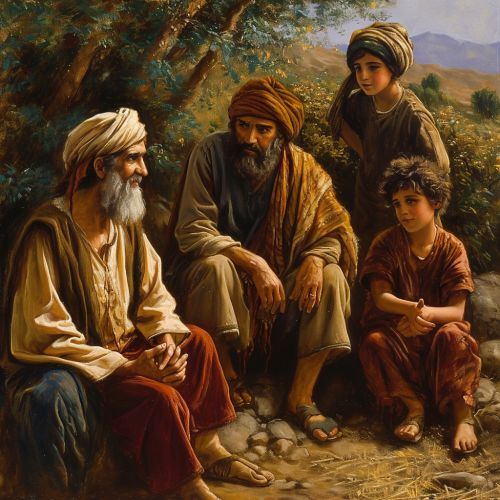Abrahamic religions
Origins and History
The term "Abrahamic religions" refers to three monotheistic religions that recognize Abraham as a significant, foundational figure: Judaism, Christianity, and Islam. These religions share a common heritage and are considered the world's largest monotheistic faiths, with billions of adherents worldwide.


The origins of the Abrahamic religions trace back to the Bronze Age, in what is now modern-day Iraq. The patriarch Abraham is traditionally believed to have lived around the 2nd millennium BCE, and his story is recorded in religious texts such as the Torah, the Bible, and the Quran.
Judaism
Judaism is the oldest of the Abrahamic religions, dating back to around 2000 BCE. It emerged among the Hebrews, who later became the Jewish people. The religion is based on the covenant God made with Abraham and his lineage, that they would be the chosen people to inherit the land of Israel.
Christianity
Christianity emerged in the 1st century CE as a sect of Judaism in the Roman province of Judea. Its followers believe in Jesus Christ as the Son of God and the Messiah prophesied in the Old Testament. Christianity spread rapidly throughout the Roman Empire and beyond, becoming one of the dominant religions in the world.
Islam
Islam arose in the 7th century CE in Mecca, a city in present-day Saudi Arabia. Muslims believe that Muhammad is the last prophet of God and that the Quran is the final and complete revelation of God. Islam shares many prophets, historical events, and religious beliefs with Judaism and Christianity.
Beliefs and Practices
While each of the Abrahamic religions has distinct beliefs and practices, they also share many similarities. All three religions are monotheistic, believing in one, all-powerful God. They also share a linear concept of time, a belief in prophets, and a focus on the community.
Influence and Impact
The Abrahamic religions have had a profound impact on world history and culture. They have influenced laws, morals, art, literature, and more. They have also been a source of conflict, as differences in beliefs and practices have led to religious wars and persecution.
